Think of a cobbler or an electric appliance repair worker, you may picture a man at work. But Bengaluru has quite a few women working in these fields which were traditionally occupied by men. This article traces a few of those journeys.
Palaniyammal, 54, is the sole woman cobbler on 80 Feet Road, with her shop located near the posh residential areas of Thippasandra and Indiranagar. She works from 10 am till 8 pm. She fondly remembers her late husband’s insistence that she visit the shop. She learnt the work by watching him. After he passed away, she quietly slipped into his ‘cobbler’ shoes.
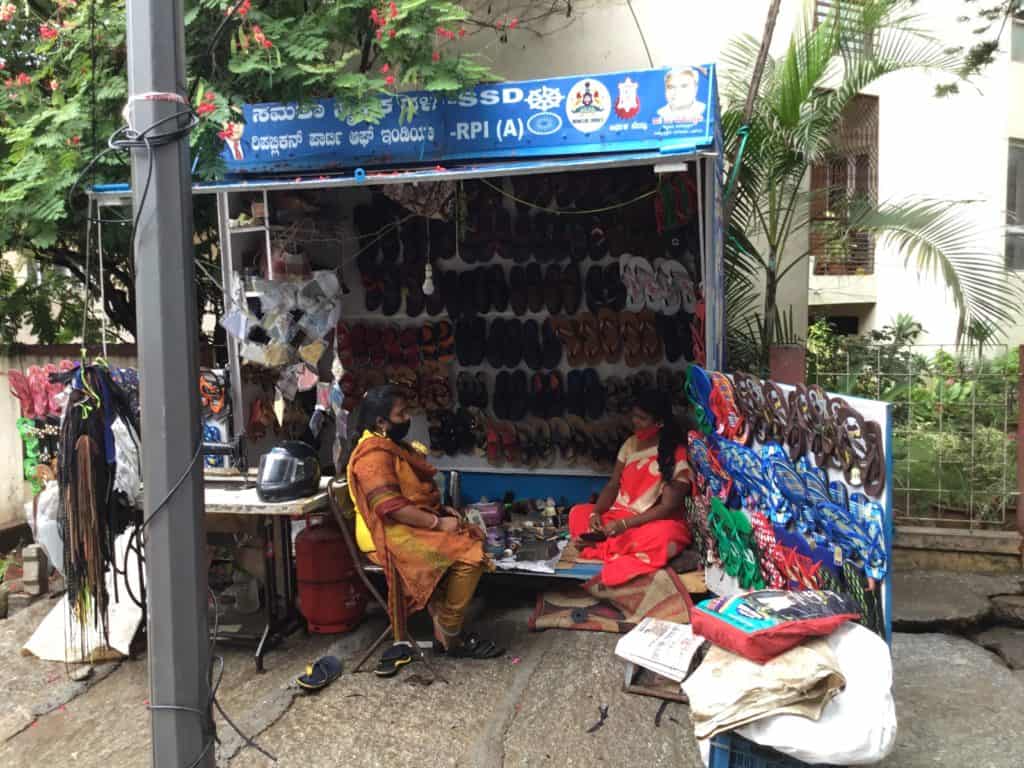
Palaniyammal was originally from a village in Tamil Nadu and her education was limited. But despite the odds, she continues to work and support her family. Today her children share her responsibilities. Palaniyammal specialises in repairing suitcases, chappals, shoes, bags, sofa and such.
Read more: How can one ensure fair rights for workers in the gig economy?
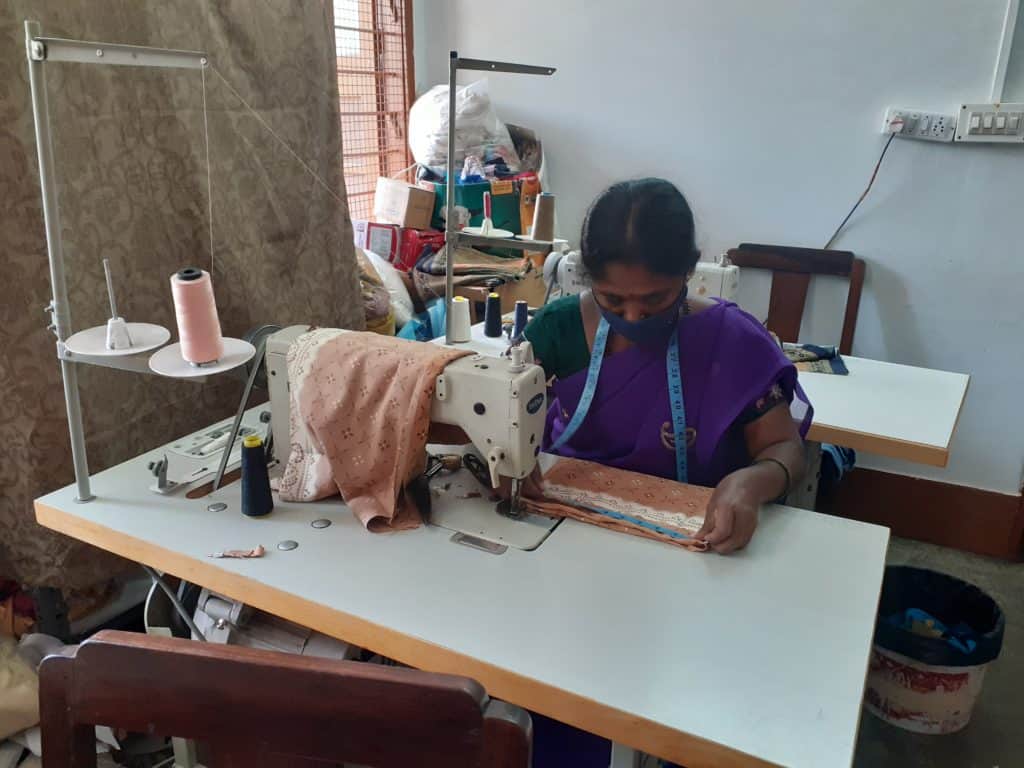
Jaya, 37, works in a tailoring unit. She trained as a sewing machine controller to find employment in the garment industry. She has had no formal education, but she can sign her name. Her husband was working at a petrol pump and the constant exposure to fumes cost him his eyesight. She has been the sole breadwinner for the family ever since. Jaya found employment with MITU (Multiple Initiatives Towards Upliftment), an NGO for women’s empowerment, two years back and earns between Rs 150 to Rs 200 per day.
Jaya spends a little over two hours daily on housework and MITU allows flexible hours. She takes work home when there are bulk orders. She is comforted that her daughters are now old enough to help.
Jaya believes that the pandemic has taught her a big lesson as a parent. That her children need to learn other skills and not just rely on formal education. During the pandemic, jobs that fed families, particularly among the working class, were not necessarily formal employment but mainly informal work.
Read more: Adapting to survive: Stories of repair economy workers
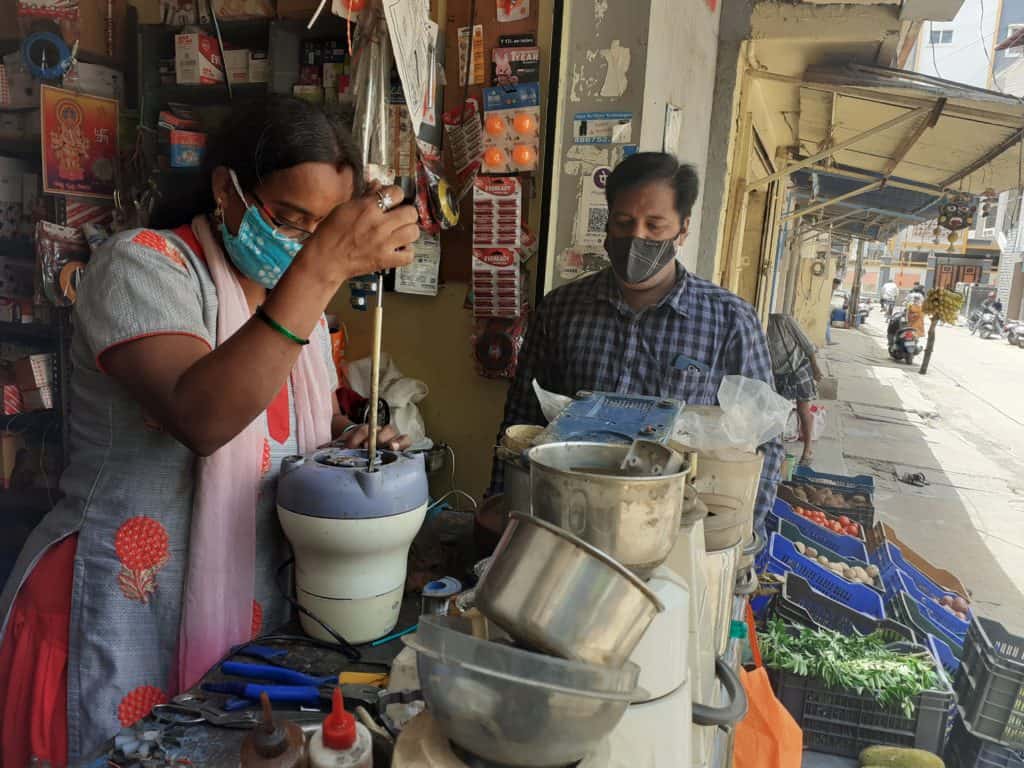
Manjula, 40, runs an electrical repair shop with her husband. Located at Mathikere, she has been running the shop for the last 20 years. She has studied till 10th standard in Kannada medium. She learnt to repair electrical gadgets by observing her husband’s work. Today, her husband provides door-step repair services like house wiring, geyser repairs, and switchboard wiring while she manages the shop for repair of mixie, fan, stove, Iron box and cooker.
Manjula manages the electrical shop all by herself now. She gained the trust of her customers by sheer dint of hard work and tact. As a woman repairer, her shop attracts many women with kitchen appliances in need of repair. She is comfortable using Paytm and other UPI payment transactions to make it convenient for customers.
For Manjula, her routine remains unchanged: waking up early, cooking breakfast, washing clothes, and the occasional caregiving for senior family members. Her shop is open from morning till noon. She heads back home for lunch with her husband. In the evening, the shop is open till 8 pm. Her daughters do not aspire to manage the shop.
A woman in a man’s domain no more a novelty
There are many women in the repair work field in Bengaluru. Palaniyammal and her sons are occasionally harassed by local authorities, but they resolve the issues amicably. The extended family too makes their living in the same way. Her sister is a cobbler too and manages a similar shop in nearby Domlur. Her brother has built a five-storey house near Koramangala, where the family lives together.
She has many male customers who initially questioned her skill at work when her husband passed away. But she held her own, firm in her belief that quality and consistency are what matters most. Palaniyammal’s income has since risen from Rs 30-100 per day to Rs 500-600 per day.
For Palaniyammal, the effort of balancing the needs of children, the family and running the shop is like walking a tightrope. Palaniyammal’s elder son declares proudly that his mother is adept at completing the housework in less than two hours. She barely gets seven hours of sleep and is up at 5 every morning. Her daughter takes care of housework while she is away.
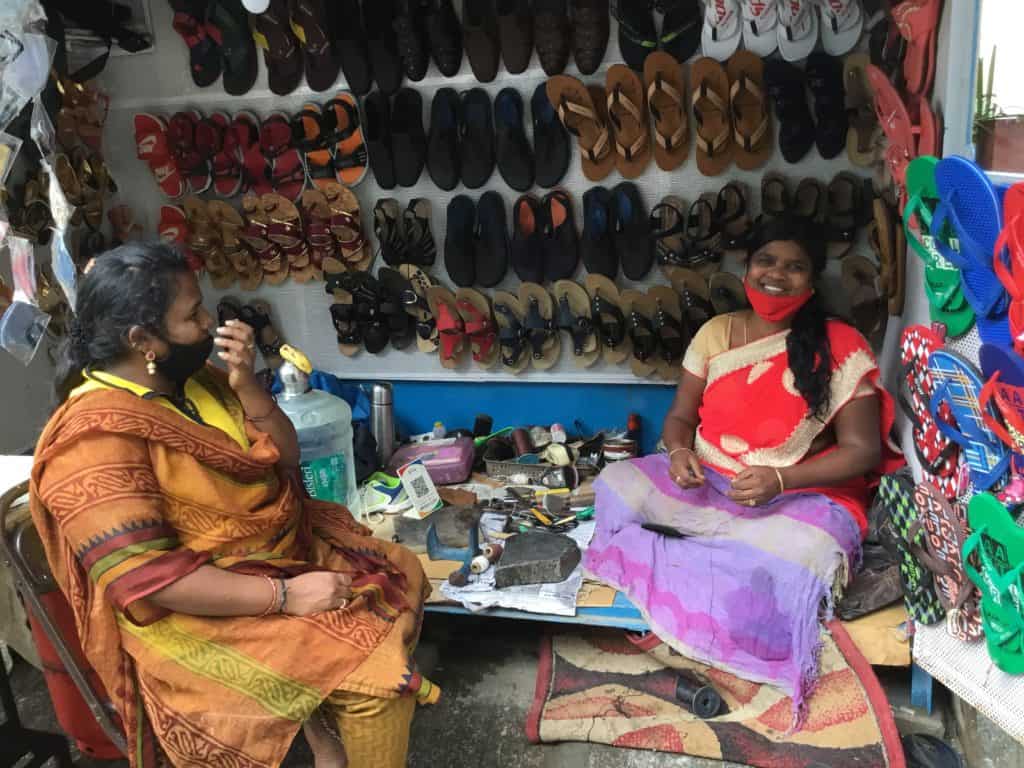
Customer decides: Repair or replace
The trend may be to discard old or broken items but these women’s efforts are a significant part of the circular economy.
Manjula’s husband says they salvage parts from discarded appliances and avoid Chinese goods. Many customers prefer to buy refurbished products rather than repair their item. About a third of their earnings come from selling refurbished goods. The couple provides wider choices to consumers by offering them refurbished or repaired goods as well as new products.
The couple buys most of the spares from the city market. Manjula negotiates the price as per the customers’ preference. For example, a mixie coupler is available at Rs 20-50. The charge for the repair services depends upon the customer’s preferences, so a fixed rate strategy does not work for them. They keep a range of spares in their shop, mixie spares like blades, coupler; cooker spares like gasket; motor spares like armature, motor, fan, switch, holders, MCB, bush (carbon), aluminum base, plastic, metal base for mixie grinder, mixie cup, etc.
The practice of salvaging spares is widespread among alteration tailors too. A shop salvages a plethora of raw materials like buttons and threads from old clothes, particularly for alteration work. These tailors keep 25-30 types of buttons and more than 20 colours of thread in stock.
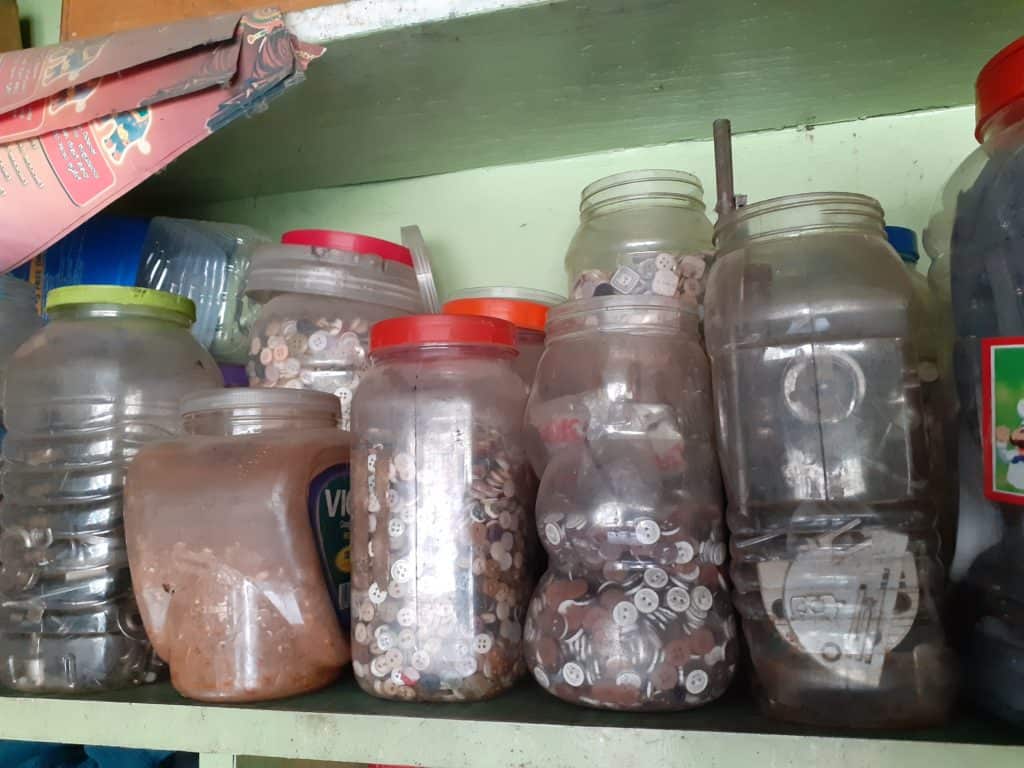
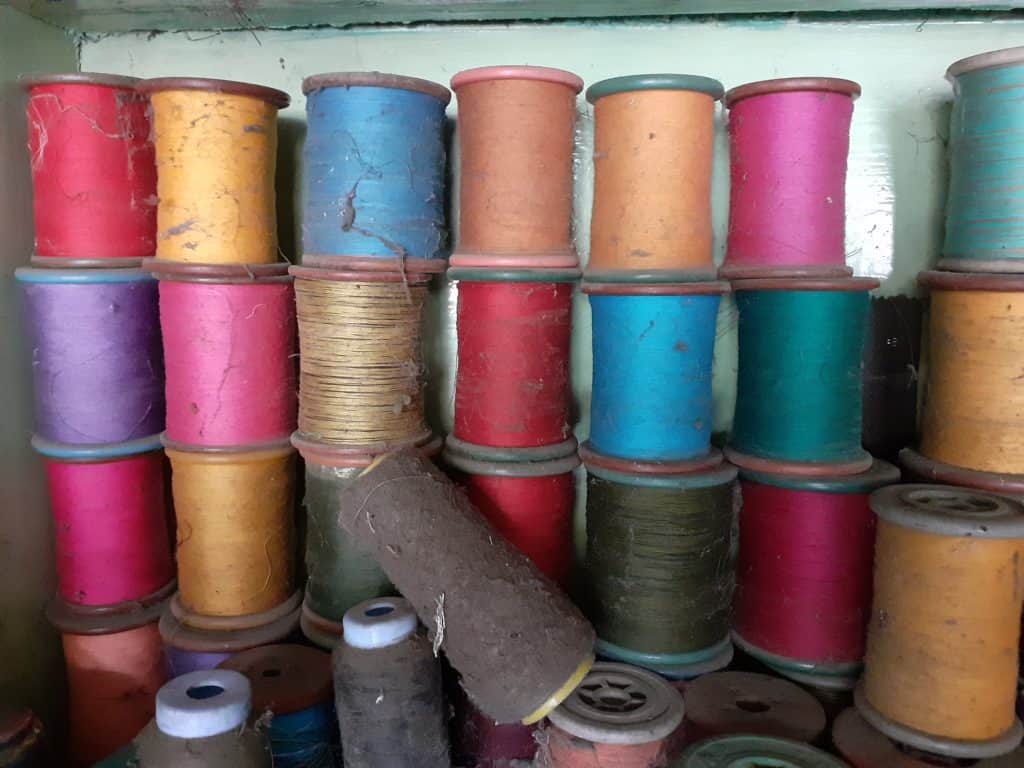
At MITU, Jaya and her colleagues are engaged in creating innovative upcycled products ranging from shopping bags, office bags, fridge bags, panty lining, menstrual cloth pads, tetra packs, handwoven bags, thamboolam bags, masks, pencil pouches, soaps from used and leftovers, fabric sample books, etc. The raw material for upcycling is donated by furnishing stores, or families discarding their belongings. MITU accepts unstitched material like sarees, curtains, towels, unstitched blouse pieces made of organza material which they use for lining their bags, and other items.
Unlike the others, Palaniyammal’s son insists that they do not salvage parts from old items, as customers demand new spares. He believes that products have become less repairable nowadays. Earlier, footwear was mostly leather and would get spoiled in the monsoon. It needed regular maintenance and repairs. However, rubber and molded chappals do not get spoiled in water and they cannot be repaired. They earn mainly from repairing bags and suitcases which is a skilled job and attracts a good fee.
Impact of the pandemic on repair workers
The cobbling business depends on a flow of regular customers and there are around 500 in the neighbourhood. Before the lockdown, there were 20-25 customers a day, which the lockdown brought down to 10-15. The lockdown has had an impact on the availability and cost of raw materials. A 500-meter long bail of string that cost Rs.300 earlier now costs Rs 800.
Through the last year, Palaniyammal has continued to sit at her roadside stall, only occasionally shutting shop. People flocked to her shop for new footwear or repair of old ones as the bigger shops were closed. She even started selling masks during this time.
Palaniyammal has had a Jan Dhan account for two years and in 2020 she got a Rs.500 deposited by the government. During her daughter’s illness, she spent Rs 6,00,000 on her treatment but still could not save her life. She borrowed from local financiers at a daily interest of 5%. She is part of a caste-based organization and political party.
Manjula educates her children in a private school but couldn’t avail RTE benefits. She doesn’t contribute to any pension scheme, and is not part of any support organisation. She has invested in bank deposits and jewellery, and has bought life insurance. Her family has had a ration card as well as BPL card for the last 20 years. Still, she could not avail of housing under the PMAY scheme due to insufficient documentation.
The lives of these women show the possibilities and challenges of livelihoods based on skilled labour. Targetted welfare schemes and support systems are needed to make a difference.
According to a Hindu report of May 20, 2021, only 11 professions are registered with the Karnataka State Unorganized Workers Social Security Board for corona relief. However, later the state announced relief for people in 12 other professions, including cobblers, a category not registered with the board.